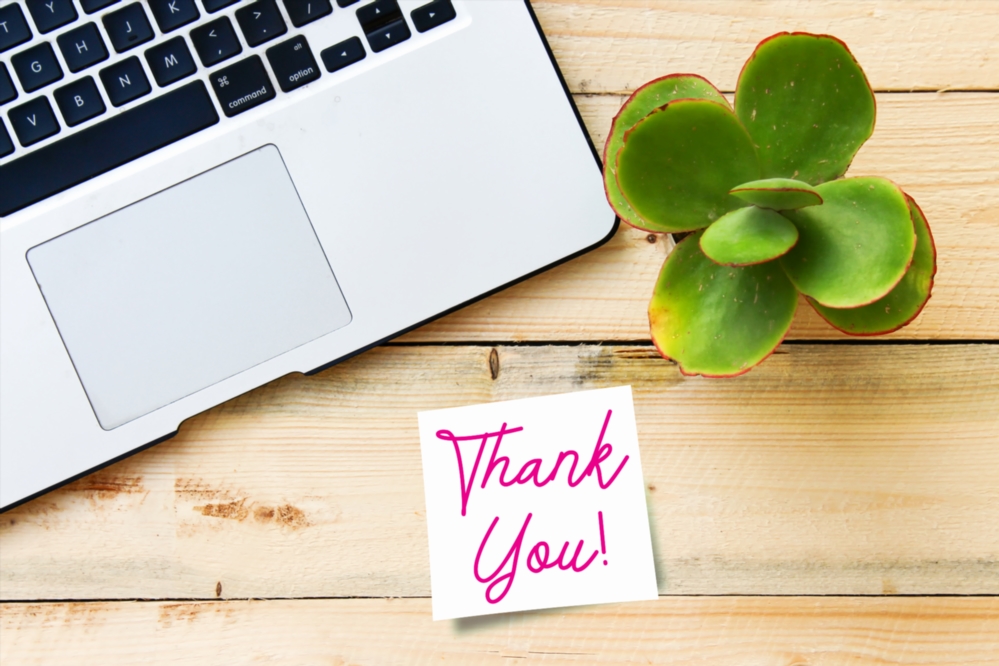In a world of extremely rapid change, we have seen plenty of things vanish, from rotary phones to electric typewriters to 8-track music cartridges.
But there is one old-time tradition that seems to be holding on: the thank-you note.
To some it may seem laughably archaic to hand-write a note, drop it in snail mail and hope the recipient gets it a few days later. One study by staffing firm Accountemps found that only 24 percent of job applicants bother to send thank-you notes these days.
But here is the rub: 80 percent of human resources managers surveyed felt those messages were useful in evaluating potential hires.
Devotees of the thank-you note are numerous and cultish – and swear that it helps careers and finances, as well as personal relationships. A hand-crafted personal touch is not just thoughtful, it actively sets you apart from others.
Manhattan’s Christina Cookman knows all about the subtle power of a thank-you note. The performance and executive coach sends a whopping 200 of them each year.
“The business case for them is that they only take five minutes of your time, and 50 cents,” Cookman said. “I can’t imagine that anyone who gets a handwritten thoughtful note is ever disappointed by that. So even if the payoff is not direct, you are at the very least strengthening a relationship.”
Music manager Clayton Durant got a joint partnership out of thank-you notes. Durant, the head of artist management and branding firm CAD Management, struck a joint deal to work with Ashley Rose, famed Roc Nation songwriter and head of indie music label The Code.
How exactly did that come about? Old-fashioned thank-you cards, sent after the label had worked on one of his artist’s records.
“When I asked Ashley why she felt comfortable having our startup be her first joint venture, she mentioned the thank-you cards we sent to each of her producers, writers and staff,” Durant said.
EXPRESSING GRATITUDE
The biggest payoff, ironically, may be the effect thank-you cards have on the sender. In 2016, Indiana University professors Joel Wong and Joshua Brown published a study of college students who had sought counseling for common feelings like anxiety and depression.
Those who were counseled to write letters of gratitude reported better mental health both one month and three months later. Those differences continued to increase over time. As researchers concluded, “If you have never written a gratitude letter before, we encourage you to try it.”
So, how to strike the right “note,” expressing gratitude and powerboosting your career and network at the same time? Some tips:
– Write them at unexpected times.
Thank-you cards are rote and expected at certain life moments – like, say, in response to wedding gifts. That is well and good, but if you pen them at more unique occasions, you can multiply their impact. Cookman’s most recent one, for instance, was to a manager at a Manhattan Dos Caminos restaurant; her friends had their engagement party there, and he helped her secure some restaurant memorabilia before the location closed down.
– Make them as personalized as you can.
If you go to the trouble of writing a note, but then make the message something general that could have been written to anyone, you are defeating the purpose of the exercise. That is why Durant made sure each of his notes to the record label’s writers and producers was personalized. “That led to us connecting more frequently to talk about business and new artists,” Durant said.
– Spring for a stamp.
A “thank you” sent by email certainly counts, but if you are looking to create a true personal touch, real stationery is key. “When a handwritten thank-you note arrives, it is the ultimate act of personalization,” said Patrick Taylor, a self-professed “huge fan” of thank-you letters, who is founder of public relations firm 59Media and former communications VP for Meredith Corporation.
– Keep them succinct.
Many people are intimidated by thank-you cards because they imagine you have to write the Great American Novel. Not so. Cookman keeps hers to about four sentences – outlining how a person went above and beyond, and the impact it had on her. Her advice: “Make it simple as possible.” -Reuters
Chris Taylor
